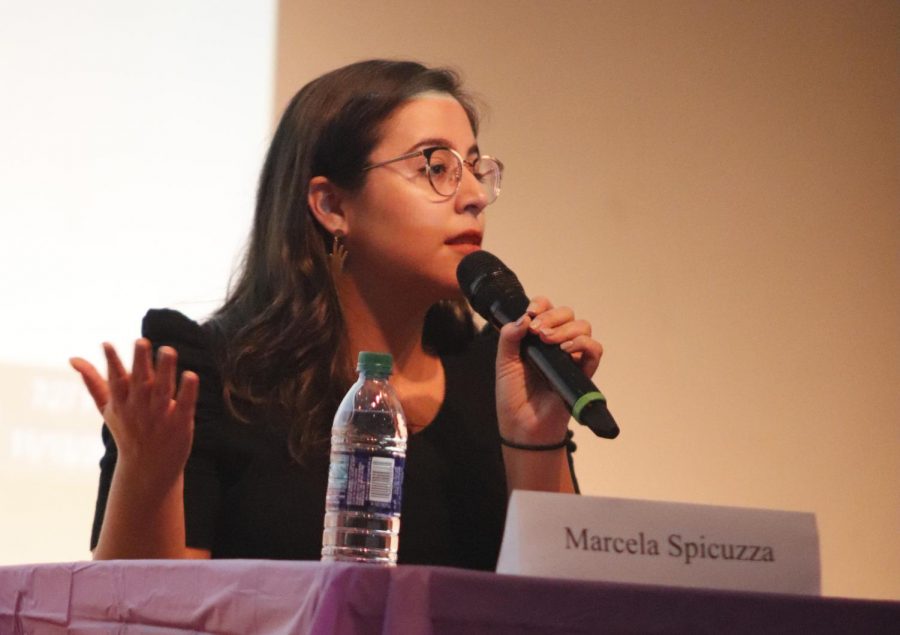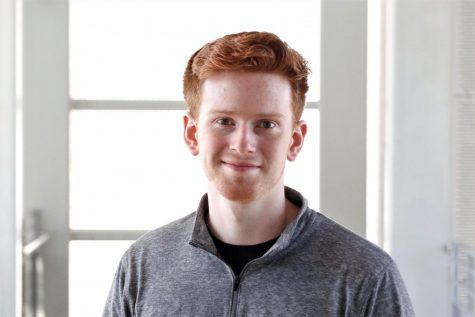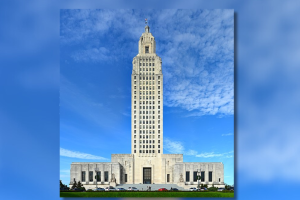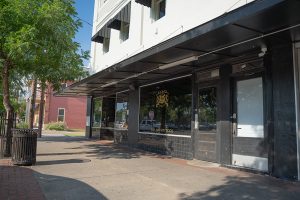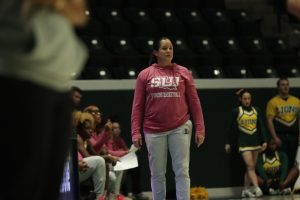Perspectives and advice for the students
Counselor at the University Health Center Marcela Spicuzza gave input about mental health and sexual assault at the “My Life Matters” seminar.
November 14, 2018
Five panelists gave students advice from the perspectives of counselors, a lawyer, a police lieutenant and a former residence assistant.
The university chapter of National Association for the Advancement of Colored People hosted “My Life Matters” on Nov. 13 at 7:15 p.m. in the Student Union Theatre. Interim Dean of Students Dr. Gabe Willis ran the discussion by displaying three scenarios for the panelists to discuss, followed by a series of questions pertaining to police interactions and mental health.
One scenario talked about a couple where the man threatened to break up with the woman if she did not have sex with him. The woman initially resisted, but fell silent as the man got his way.
Panelists Annette Newton-Baldwin, the Assistant Director of Programming and Outreach at the University Counseling Center, and Marcela Spicuzza, a counselor at the UCC, explained that the woman did not give clear verbal or physical consent, therefore the man sexually assaulted her.
Panelist and lawyer at Williams Law Practice Vanessa Williams shared her interpretation.
“It’s a really tough spot because while she verbalized it initially, she stopped at some point,” said Williams. “He doesn’t know what’s in her head. So he’s thinking, at least this is what he’ll testify to, ‘I thought she stopped. I thought it was OK at that point. I thought she changed her mind, so I went along with it.’”
A later scenario describes a fight where the woman assaults the man, and the man hesitantly fights back.
Panelist and Instructor of Communication Keturah Green explained that as a former residence assistant, she would try to find the truth between the two perspectives.
“If I were the RA or if I was the one that she reported to, I wouldn’t automatically just assume that he did this,” said Green. “I would probably go and look for him so that we could have a conversation about what occurred first: where both parties are there to defend themselves, and both parties are there to share what went down.”
In a later discussion, panelist and university police lieutenant Patrick Gipson explained how the the University Police Department promotes safety to the students.
“The way the police department keeps the campus safe is by teaching the students how to teach the campus safe,” said Gipson. “We can’t do it by ourselves. There’s just not enough of us. The campus is as safe as the students want it to be, and the reason I say that is because you’re going to know about stuff going on before I will. I’m not going to be here all the time.”
Towards the end of the seminar, Spicuzza shared why people should check up on their mental health during the good times.
“The best time to go is when things are not that bad,” said Spicuzza. “‘You know what, I have space to process, and I can be open and clear with my thoughts, and I feel safe in my body.’ Then if something big does happen, then I have the tools to deal with that.”
Student can contact either the UCC or UPD to report or discuss a sexual assault incident.


